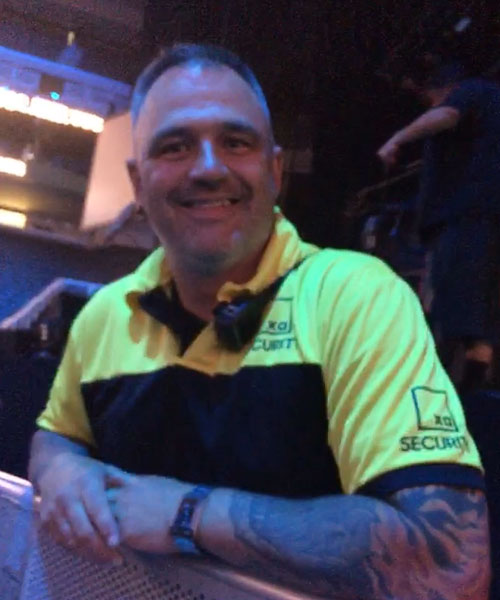
James' Story
James, a heavy-duty mechanic by trade, shares his experiences overcoming alcoholism and depression, as well as some practical tips on what helped the most.

James, a heavy-duty mechanic by trade, shares his experiences overcoming alcoholism and depression, as well as some practical tips on what helped the most.
"As I continued in my courses and counselling, I realized my alcoholism was rooted in a deep seated mental health issue that I had carried most of my life."
About James:

I am a father to three young adults, two boys (19 and 21) and a girl (15). A heavy-duty mechanic by trade and a specialist in cranes. I have travelled throughout North America and Europe to fix machines for almost 15 years. I now work in membership development in the union office and do concert security on the side. I am an advocate for mental health and sobriety, and give time out of every weekend to serve meals at one of the homeless shelters here in Edmonton.
After battling severe depression and anxiety, drinking near daily since my teens, I decided with the help of a friend to stop drinking. After about 8 months of not knowing how to “live” sober I enrolled in a mental health and addiction program at a local hospital. Had I not gotten help when I did, there is no way I would be here today.
During one of the classes, the discussion was about different forms of treatment. The class I was taking, and the counselling were labelled as forms of treatment. This was a real eye opener for me as I had always seen treatment as for hard core drug users; not me and my alcohol use. It was then I decided that over the years at work, I had always put the work and effort in to fix a machine so why not myself. As I continued in my courses and counselling, I realized my alcoholism was rooted in a deep seated mental health issue that I had carried most of my life. Once the alcohol was out of the way, I was able to focus on solely my mental health.
WHAT ARE SOME THINGS THAT REALLY HELPED?
The tools I’ve used are:
I began to see myself as worthy of the effort to get better and stopped bailing on myself. I had to set healthy boundaries and stick to them as difficult as that was. I learned that I had to acknowledge my feelings and emotions, be honest with them and deal with it on my terms, when I was ready. I had to learn to accept the good things in my life and not sabotage them, and that I do deserve to be happy. I have learned to be patient with myself when something comes up that I need to deal with and it’s okay to take the time to figure it out. Recognizing that adversity can be a good thing for me and is not always meant to destroy me. A reconnection to my spiritual side has been of great importance – and no, I don’t mean religion.
The advice I would give to someone struggling would be to see yourself as worth the effort, and that you deserve to be happy. Your health must come first, or you will not be able to be there for others. Take some time out of every day for yourself. Have a vision for how you want your life to be. Find something that excites you and makes you feel alive.
Take the time you need and don’t listen to those who tell you to just get over it, it takes more strength to admit you’re struggling than to be a “tough guy”. Lastly, I would say, stay the course, as hard as today may be, I assure you the sun comes up tomorrow.
– James Dawson, father and heavy-duty mechanic, based in Edmonton, AB, Canada.
Help us explore the complex connections between men's mental health and their romantic relationships by participating in the Men and Relationships Study. Your insights will contribute to a deeper understanding of how relationships impact well-being, helping to shape better mental health support for men.
Participants may enter a draw for one of four $100 prepaid Mastercards.
Take the survey today and be part of this important research.